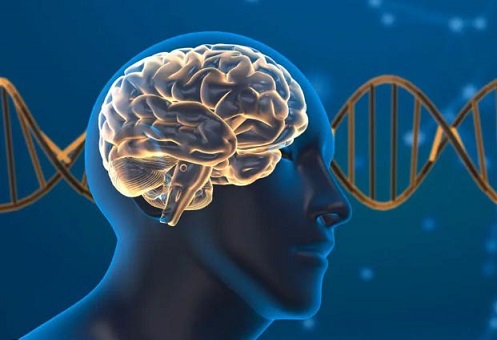Nikhil Prasad Fact checked by:Thailand Medical News Team Jul 19, 2024 1 year, 5 months, 3 weeks, 2 hours, 29 minutes ago
COVID-19 News: A Rare Case Unveiled
In a remarkable case from India, an elderly man developed Creutzfeldt-Jakob Disease (CJD), a rare and fatal brain disorder, more than a year after recovering from COVID-19. This intriguing connection has prompted further investigations into the long-term neurological effects of COVID-19. Most importantly the case report alerts the medical community and also those that had been affected by COVID-19 that Creutzfeldt-Jakob Disease can develop in those that had been exposed to the SARS-CoV-2 virus months or years later!
The Case in Focus
The case involved an 83-year-old man who initially contracted COVID-19 in April 2021. He exhibited typical symptoms such as fever, cough, and loss of smell. Following a home treatment plan, he showed significant improvement within two weeks. However, this
COVID-19 News report delves into a startling turn of events that occurred over a year later.
 Unusually Late Onset of Rare Brain Disease After COVID-19
Unexpected Symptoms Emerge
Unusually Late Onset of Rare Brain Disease After COVID-19
Unexpected Symptoms Emerge
In August 2022, the man returned to the hospital with alarming symptoms including memory loss, mood swings, and an inability to perform simple tasks. Despite his normal blood pressure and heart rate, doctors noted severe memory impairment and mild muscle rigidity.
Extensive tests were conducted to identify the cause of these symptoms. Blood tests and metabolic screenings were normal, ruling out common issues like vitamin deficiencies or infections. However, MRI scans revealed diffuse abnormalities in his brain, suggesting encephalitis or possibly CJD.
A Rapid Decline
The patient's condition rapidly deteriorated. Within a month, he experienced blurred vision, frequent fevers, instability in walking, and involuntary jerky movements. These symptoms, combined with his cognitive decline, led doctors to suspect CJD.
CJD is a rare, fast-progressing neurodegenerative disease caused by abnormal proteins called prions. It is typically seen in people aged 50-70 and is characterized by symptoms such as dementia, muscle stiffness, and involuntary movements. The diagnosis was confirmed through brain imaging, which showed hallmark signs of CJD, including cortical ribboning.
COVID-19 and Neurological Complications
This case adds to the growing body of evidence linking COVID-19 to long-term neurological issues. While it is known that COVID-19 can cause a range of neurological problems, from headaches and cognitive deficits to severe conditions like stroke, the onset of CJD so long after infection is unprecedented.
Researchers from the Employee State Insurance Corporation (ESIC) Medical College and Hospital in Hyderabad, Guntur Medical College in Guntur, Government Medical College in Vijaywada, and Larkin Community Hospital in Miami conducted this study. They emphasize the need for further research to understand the mechanisms behind this association and to develop strategies for managing post-COV
ID-19 neurological complications.
Understanding Creutzfeldt-Jakob Disease
CJD comes in various forms: sporadic, genetic, iatrogenic, and variant. Sporadic CJD, the most common type, occurs randomly without a known cause and affects people typically between 55 and 75 years old. It progresses rapidly, with most patients succumbing within a year of symptom onset. Genetic CJD is inherited and caused by mutations in the PRNP gene. Iatrogenic CJD results from exposure to contaminated medical instruments or transplants, while variant CJD is linked to consuming infected beef.
In this case, the patient's symptoms and MRI findings pointed to sporadic CJD. His rapid cognitive decline, myoclonic jerks (sudden muscle spasms), and other neurological symptoms aligned with the typical presentation of CJD.
The Pathophysiology of CJD
CJD is caused by the abnormal folding of prion proteins in the brain, leading to brain damage. These proteins accumulate, causing brain cells to die and resulting in the characteristic symptoms of CJD. The disease progresses quickly, with patients often becoming bedridden and losing the ability to communicate or care for themselves.
The Link to COVID-19
The exact link between COVID-19 and CJD remains unclear. COVID-19 has been associated with various neurological symptoms and conditions, likely due to its impact on the nervous system and immune response. The virus can cause inflammation and damage to brain cells, potentially triggering or accelerating neurodegenerative processes.
This case suggests that COVID-19 may play a role in the onset or progression of CJD, though more research is needed to confirm this and understand the underlying mechanisms.
Conclusion
This extraordinary case underscores the importance of monitoring COVID-19 survivors for long-term neurological complications. It also highlights the need for healthcare providers to be aware of the diverse and sometimes delayed effects of COVID-19 on the brain.
The case report and study findings were published in the peer-reviewed journal Cureus.
https://www.cureus.com/articles/263323-unusually-late-onset-of-creutzfeldt-jakob-disease-following-covid-19-infection-in-india-a-case-report#!/
For the latest
COVID-19 News, keep logging into Thailand Medical News.
Read Also:
https://www.thailandmedical.news/news/warning-sars-cov-2-infections-can-trigger-and-accelerate-progression-of-creutzfeldt-jakob-disease-in-those-with-e200k-mutation
https://www.thailandmedical.news/news/researchers-in-singapore-warn-that-sars-cov-2-can-lead-to-creutzfeldt-jakob-disease-in-some-post-covid-individuals-presenting-with-psychiatric-symptom
https://www.thailandmedical.news/news/deadly-brain-invader-is-covid-19-unleashing-a-prion-plague-on-humanity
